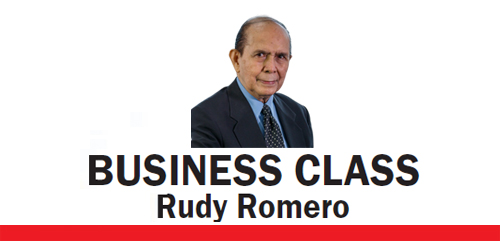
It is a great pity that Sixto Roxas was largely forgotten during the last years of his life. He was a giant in this country’s financial system.
I was saddened, but not surprised, by the fact that the passing last week of economist-banker Sixto K. Roxas attracted very little attention. I don’t think it’s fair that Roxas – Ting to his friend and colleagues and SKR to his staff – should pass on to the Great Beyond without some recollection of his life, his times and his contribution to Philippine society, especially to the economy.
Roxas founded the Philippine money market – the place where users of all kinds of financial resources make deals. That was Ting Roxas’s crowning achievement and his greatest contribution to the development of the Philippine economy. If the National Artist Awards Program is ever to include a National Artist for Financial Arts, Roxas should be the first awardee, albeit posthumously.
It is not surprising that no notice of Roxas’s passing was taken by the millennials and Gen Z members. Afterall, Roxas scored his greatest achievements, and his peak of professional stature, in the 1970s and 1980s. But students of this country’s financial system should have known about Roxas’s place in history.
Roxas’s vehicle of choice for the establishment of the Philippine money market was Bancom Development Corporation, an investment house that he founded in the late 1960s with the Barcelon and Del Rosario interests.
Roxas, fresh from a stint as the first director-general of the Macapagal-era Program Implementation Agency (PIA), recruited the brightest minds in the Philippine financial sector and welded them into the most powerful private financial institution in this country. Bancom was soon put together, as advisor and/or lender, to some of the biggest and most creative financial deals. Many Bancom officers later became chief executive officers of commercial banks and other business entities. So great has Bancom’s prestige become that at least one commentator was heard to speak of a “Bancom man.”
Roxas and his Bancom truly were game-changers. Up until their entry into the Philippine financial scene, the financing of business activities and the generation of interest and fee income were done on the basis of traditional banking operations. With the entry of quasi-banking into the Philippine financial marketplace, sources of financial resources could now generate interest income even on an overnight basis and users of financial resources would have funding sources other than the traditional bank loans. At the heart of these novel ways of providing and accessing financing was Bancom.
The beauty about Bancom was that it was mainly a Philippine company. Prior to the start of Bancom’s operations, investment banking/quasi-banking was largely the domain of foreign investment and commercial banks. Bancom planted the Philippine flag on the international financial soil. Roxas in effect told the international financial community that Filipinos possessed the capability for undertaking non-traditional as well as traditional banking operations.
So firmly had Roxas established his reputation in the US banking community that in due course he received a tribute that only outstanding foreign bankers were accorded – membership in the board of directors of a major US bank. In Ting Roxas’s case, the bank was American Express International Banking Corporation, AEIBC offered Roxas a directorship. No other Filipino banker has ever been accorded such an honor by the US banking community.
Unfortunately, there was a downside to the AEIBC directorship; it meant that Roxas had to spend a substantial amount of time in New York. During one of his long absences away from Bancom, his top lieutenants got the company involved in one or two bad financing deals. Those deals eventually brought the company down.
Today, there are in this country many financial institutions engaged in non-traditional banking. Some are better than others. But in my view, there is no financial institution that could rival Bancom in its heyday. The Philippine financial system needs an institution like Bancom.
It is a great pity that Roxas was largely forgotten during the last years of his life. He was a giant in this country’s financial system. Looking around at the current banking scene, I can see no one who measures up to him.
I salute you in death as I saluted you in life, SKR. (llagasjessa@yahoo.com)


Be the first to comment